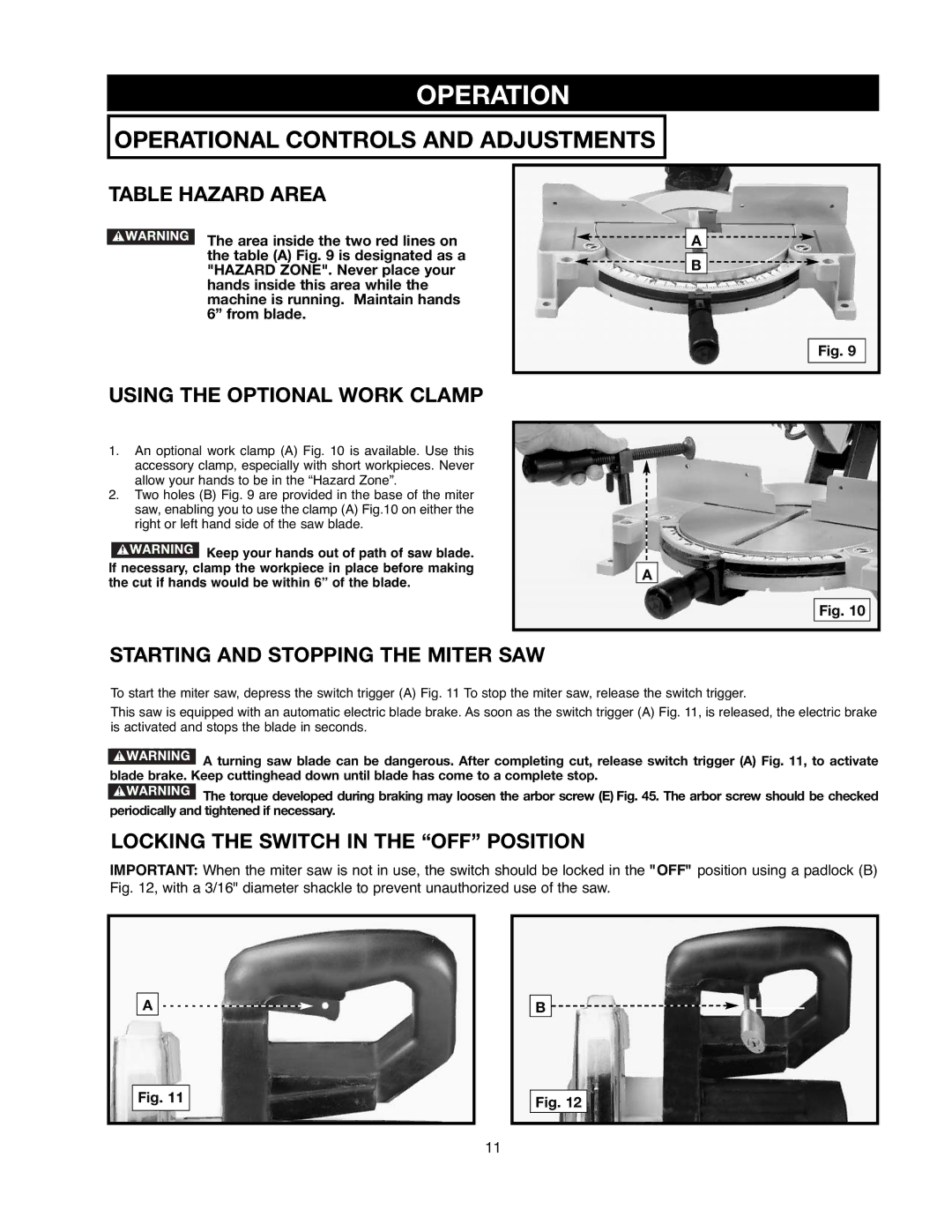
OPERATION
OPERATIONAL CONTROLS AND ADJUSTMENTS
TABLE HAZARD AREA
The area inside the two red lines on the table (A) Fig. 9 is designated as a "HAZARD ZONE". Never place your hands inside this area while the machine is running. Maintain hands 6” from blade.
A |
B |
Fig. 9 |
USING THE OPTIONAL WORK CLAMP
1.An optional work clamp (A) Fig. 10 is available. Use this accessory clamp, especially with short workpieces. Never allow your hands to be in the “Hazard Zone”.
2.Two holes (B) Fig. 9 are provided in the base of the miter saw, enabling you to use the clamp (A) Fig.10 on either the right or left hand side of the saw blade.
![]() Keep your hands out of path of saw blade. If necessary, clamp the workpiece in place before making the cut if hands would be within 6” of the blade.
Keep your hands out of path of saw blade. If necessary, clamp the workpiece in place before making the cut if hands would be within 6” of the blade.
A
Fig. 10
STARTING AND STOPPING THE MITER SAW
To start the miter saw, depress the switch trigger (A) Fig. 11 To stop the miter saw, release the switch trigger.
This saw is equipped with an automatic electric blade brake. As soon as the switch trigger (A) Fig. 11, is released, the electric brake is activated and stops the blade in seconds.
![]() A turning saw blade can be dangerous. After completing cut, release switch trigger (A) Fig. 11, to activate blade brake. Keep cuttinghead down until blade has come to a complete stop.
A turning saw blade can be dangerous. After completing cut, release switch trigger (A) Fig. 11, to activate blade brake. Keep cuttinghead down until blade has come to a complete stop.
![]() The torque developed during braking may loosen the arbor screw (E) Fig. 45. The arbor screw should be checked periodically and tightened if necessary.
The torque developed during braking may loosen the arbor screw (E) Fig. 45. The arbor screw should be checked periodically and tightened if necessary.
LOCKING THE SWITCH IN THE “OFF” POSITION
IMPORTANT: When the miter saw is not in use, the switch should be locked in the "OFF" position using a padlock (B) Fig. 12, with a 3/16" diameter shackle to prevent unauthorized use of the saw.
A ![]()
![]()
![]()
B ![]()
Fig. 11
Fig. 12
11
